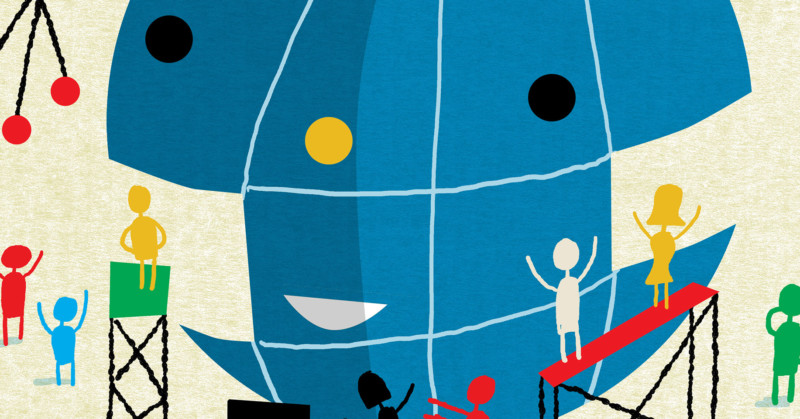Saved by sari and
Illustration by James Yang
A public service Web invites us to imagine services that don’t exist now, because they are not commercially viable, but perhaps should exist for our benefit, for the benefit of citizens in a democracy. We’ve seen a wave of innovation around tools that entertain us and capture our attention for resale to advertisers, but much less innovation around
... See moreEthan Zuckerman • Building a More Honest Internet - Columbia Journalism Review
We’ve grown so used to the idea that social media is damaging our democracies that we’ve thought very little about how we might build new networks to strengthen societies. We need a wave of innovation around imagining and building tools whose goal is not to capture our attention as consumers, but to connect and inform us as citizens.
Ethan Zuckerman • Building a More Honest Internet - Columbia Journalism Review
In the past decade, we’ve moved from Wikipedia being the butt of online jokes about unreliability to Wikipedia being one of the best definitions we currently have of consensus reality.
Ethan Zuckerman • Building a More Honest Internet - Columbia Journalism Review
Of the world’s top hundred websites, Wikipedia is the sole noncommercial site. If the contemporary internet is a city, Wikipedia is the lone public park; all the rest of our public spaces are shopping malls—open to the general public, but subject to the rules and logic of commerce.
Ethan Zuckerman • Building a More Honest Internet - Columbia Journalism Review
Shoshana Zuboff, a scholar and activist, calls this model “surveillance capitalism”; it’s a system in which users’ online movements and actions are tracked and that information is sold to advertisers. The more time people spend online, the more money companies can make, so our attention is incessantly pulled to digital screens to be monitored and m
... See more